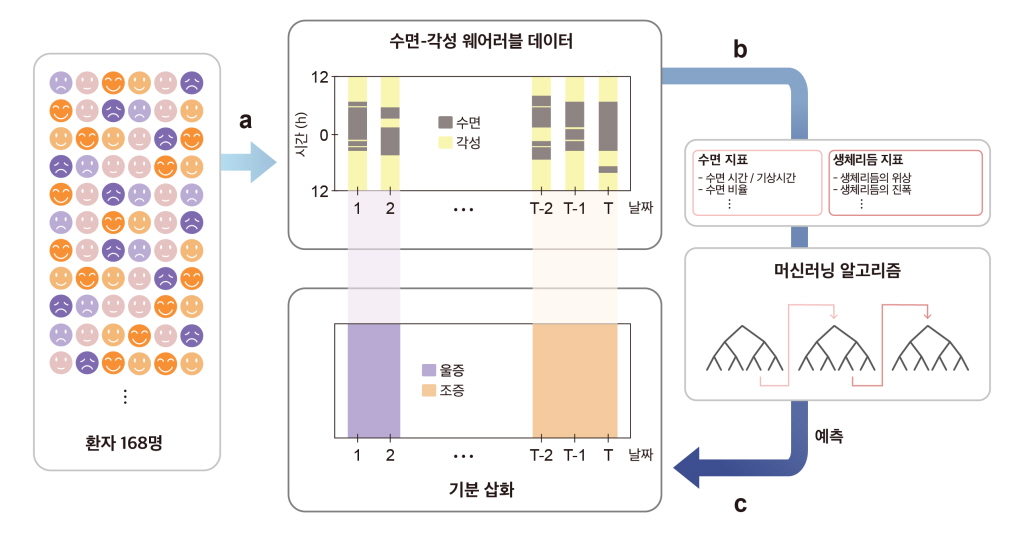기초과학연구원(IBS) 수리 및 계산 과학 연구단의 김재경 CI 연구팀은 이헌정 고려대 교수팀과 함께 수면 패턴을 기반으로 기분을 예측하는 기술을 개발하며, 우울증, 조증 등 기분 장애 환자들의 치료에 도움을 줄 것으로 기대된다.

▲수면-각성 데이터만을 이용한 기분 삽화 예측 모델 개발
IBS, 수면·생체리듬 기반 기분 장애 예측 기술 개발
웨어러블 기기로 내일 기분을 일기예보처럼 예측할 수 있는 기술이 개발돼 우울증, 조증 등 기분 장애 환자들의 치료에 도움을 줄 것으로 기대된다.
기초과학연구원(IBS) 수리 및 계산 과학 연구단의 김재경 CI 연구팀은 이헌정 고려대 교수팀과 함께 수면 패턴을 기반으로 기분을 예측하는 기술을 개발했다고 25일 밝혔다.
연구진은 수면-각성 패턴 데이터만으로 기분 삽화를 예측하는 모델을 개발했다.
168명의 기분 장애 환자의 평균 429일간의 수면 데이터를 수집했다.
연구진은 이 데이터를 기계학습 알고리즘에 적용해 다음 날의 우울증, 조증을 각각 80%, 98%의 정확도로 예측할 수 있었다.
생체리듬의 변화가 기분 삽화 예측의 핵심 지표임을 발견했다. 생체리듬이 늦춰질수록 우울 삽화의 위험이 증가한다.
반대로 과도하게 앞당겨지면 조증 삽화의 위험이 증가한다.
예를 들어 저녁 11시에 잠들고 오전 7시에 일어나는 리듬을 가진 사람이 늦게 자고 늦게 일어나면 우울 삽화의 위험이 높아진다.
연구진이 제시한 방법론은 기분 장애 환자의 치료 효율성을 높일 것으로 기대된다.
실제 임상에서는 계절성 우울증 환자의 치료를 위해 이른 아침에 광선치료를 진행한다.
이번 연구는 객관적 기분 삽화 데이터를 얻을 수 있는 방법론을 제시했다.
특히 웨어러블 기기를 통해 비침습적이고 수동적으로 데이터를 확보할 수 있다는 점이 장점이다.
이헌정 교수는 “이번 연구는 기분 장애 예측의 새로운 패러다임을 제시했다”고 밝혔다.
김재경 CI는 “데이터 수집 비용을 절감하고, 임상 적용 가능성을 높였다”고 말했다.
이번 연구 결과는 11월 18일 ‘NPJ Digital Medicine’ 온라인판에 게재됐다.
